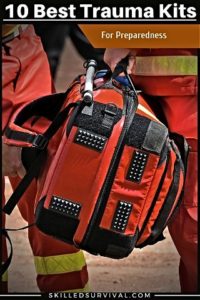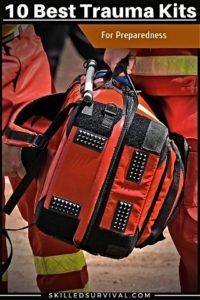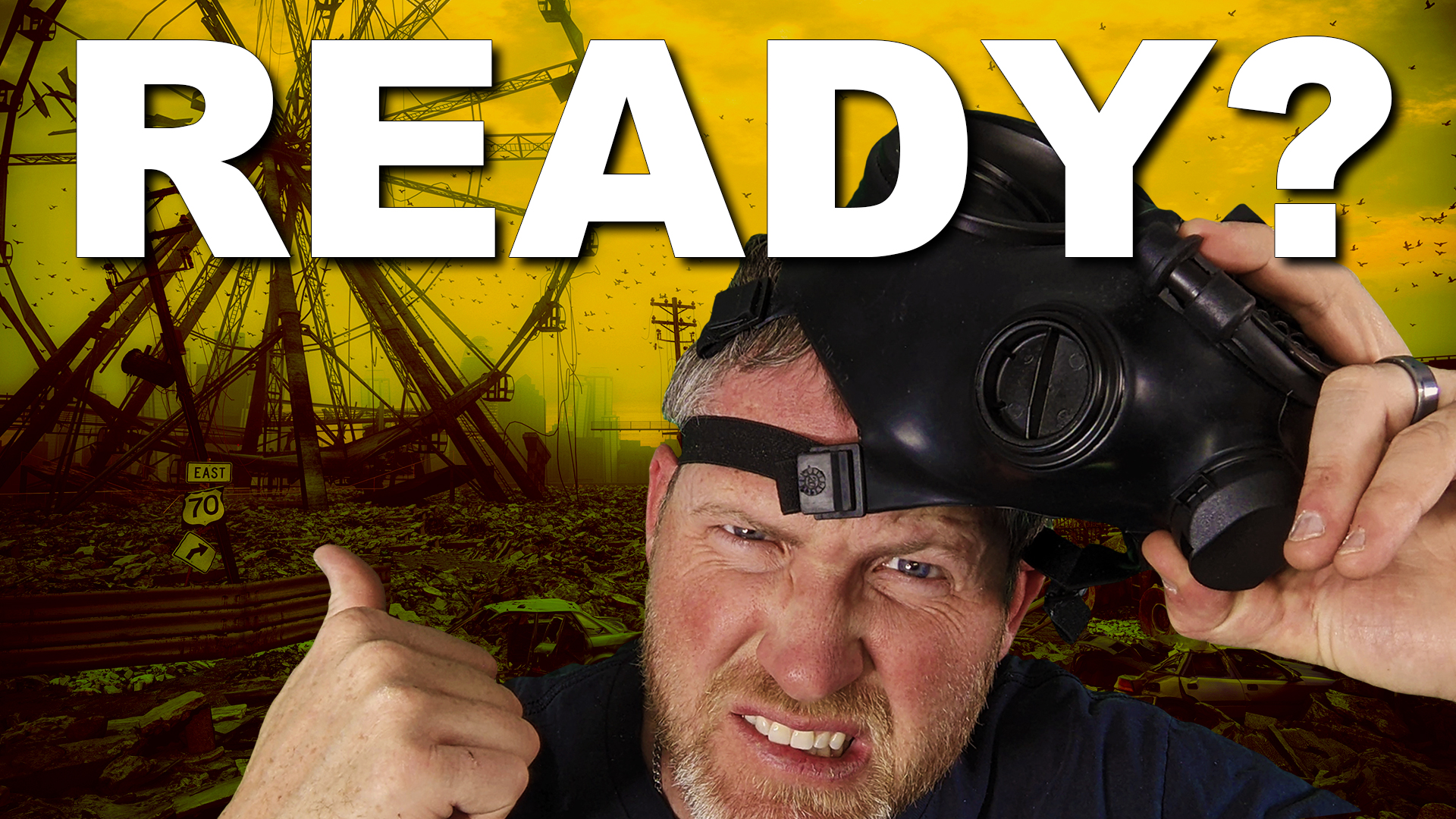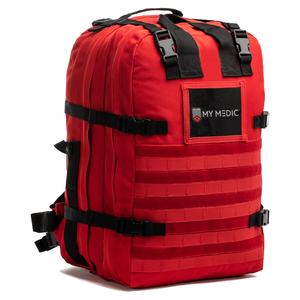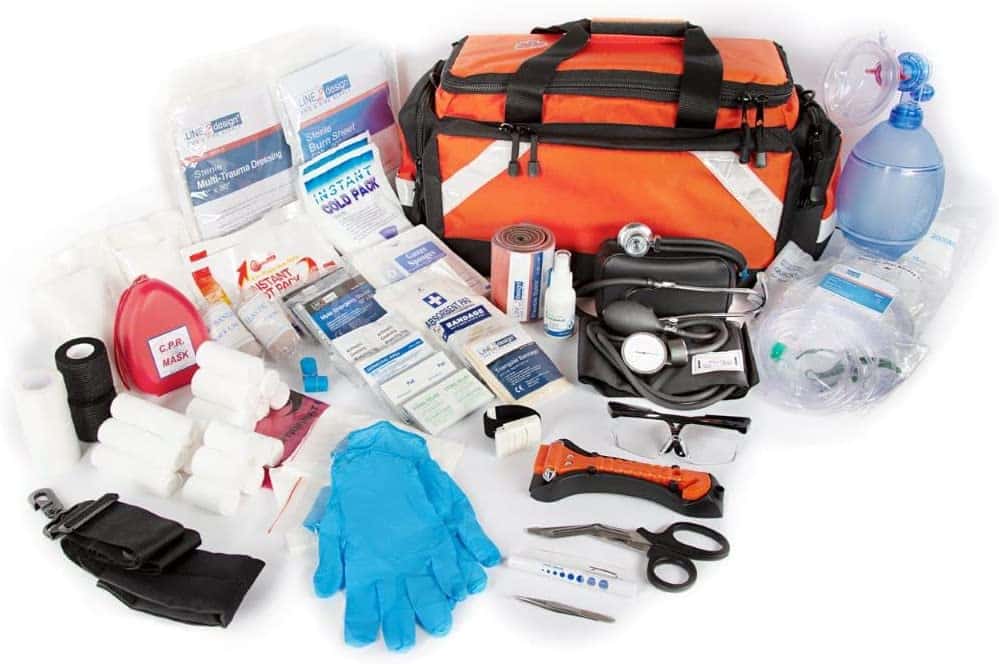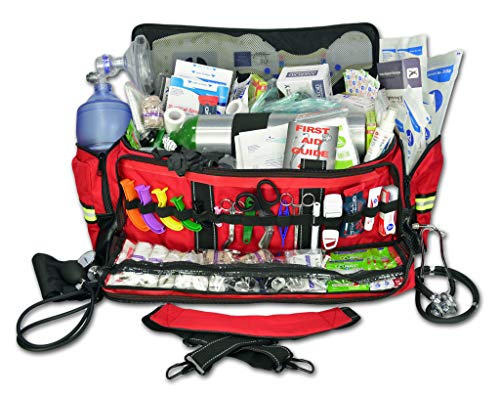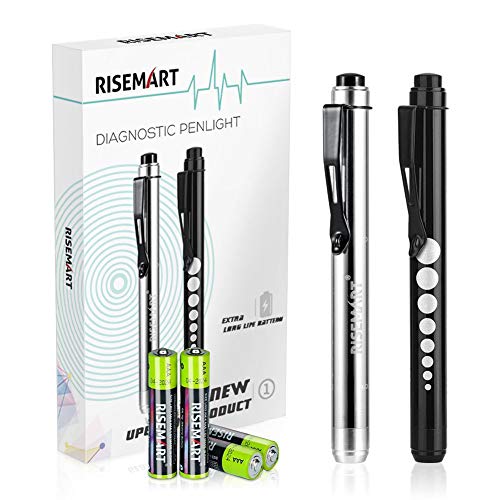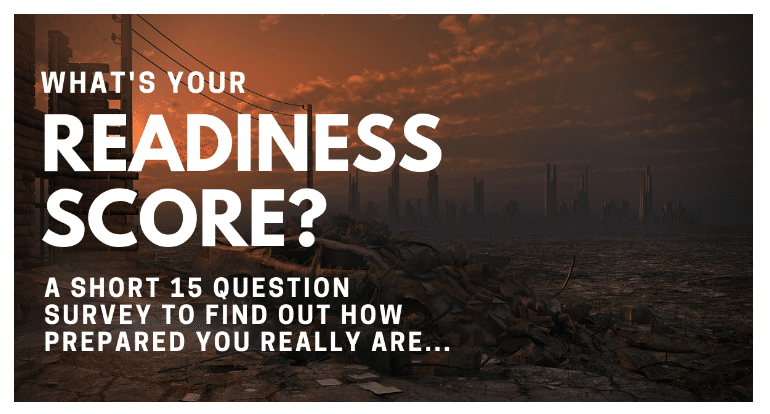Searching For A New Trauma Kit (or want to build your own)? You’re In The Right Place.
Nowadays, there are hundreds of unique trauma kits on the market.
And in general, that’s a good thing.
But with so many options comes confusion and analysis paralysis.
For example, you may find yourself asking some of the following questions:
What’s the best trauma kit? What trauma kit devices are “must-haves” vs. “nice-to-have”?
(Or even more important) – Which ones can I do without? What’s the recommended overall weight of a full-fledged EMT kit vs. an EDC kit?
That’s why today, I’m going to rely on my Research and Rescue Training to share everything I know about trauma kits:
TABLE OF CONTENTS
Best Trauma Kits For Sale
Trauma Kit Vs. First Aid Kit
What’s In A Trauma Kit?
Why Do YOU Need One?
How To Use A Trauma Kit
Best Trauma Kit Features
How To Build A Trauma Kit
Trauma Kits For Pets
Are You Ready For The Tough Times Ahead? Take My 60 Sec Quiz To See If You’re Part Of ‘The Fragile Masses’ Or Not… Start Quiz Now!
Best Trauma Kits For Sale Today
Since there are so different types of trauma, it makes sense that there are tons of different kits on the market.
These range from EMT bags for an ambulance crew to individual trauma kits.
They can also reflect a wide range of users and scenarios.
Here are some of the best for each category.
Full EMT-Style Kits (4)
The Medic from MyMedic
This Advanced Medical Kit from MyMedic has it all:
- Hand-picked by first responders and medical pros
- Durable materials made to rugged military standards
- MOLLE loops allow for modular add-ons
- Over 550 quality first-aid and trauma supplies (advanced kit)
- HSA/FSA Approved
The extended zipper on this bag allows it to open completely and lay flat. This enables you to view and access the Life-Saving Supplies inside quickly.
This is no ordinary backpack. With two main compartments and integrated modular organization, it’s almost too easy to find the products you’re after. Just be sure to put them back where you got ’em from.
The Medic is basically a small hospital. When you’re carrying that around on your back, you want comfort. That’s why it includes a padded and ventilated back panel, as well as a sternum strap and a waist strap.
It includes high-quality molle straps and velcro patches. Just in case you wanted to add more to this kit…but on the outside. So go ahead, and attach whatever suits your fancy.
The last thing you want in an emergency situation is a stuck zipper. They thought of that. So they put the largest, highest quality zippers they could find on this kit. Go ahead, try to get it to snag.
PROS
- Uses only top-notch medical gear and supplies
- Well-constructed bag with padded back & sternum/waist straps
- MOLLE system to add more equipment
- Quality large zippers
CONS
- At 18 – 24 lbs., it’s a hefty kit
- It’s a steep price (but the pack and supplies are exceptional)
↓ The Medic First Aid Kit Overview ↓
Lightning X Jumbo Medic First Responder EMT Trauma Bag
One of the more highly rated EMT-style kits, the Lightning X Jumbo Medic, is a tremendous full-sized trauma kit.
It’s well-stocked from the start but leaves space for adding more equipment later.
This first responder trauma kit also features an oxygen bottle and regulator. But this means (due to federal law) those devices are shipped empty.
If you find you don’t want to carry the oxygen bottle, that space can accommodate other bulky gear.
Unlike some kits, the bag has extra space for future items, making finding gear easier.
PROS
- Well-constructed bag with a waterproof bottom and wide shoulder straps
- You can access the oxygen cylinder from outside the bag
- Extra space to add more equipment
CONS
- At nearly 20lbs, this is a hefty kit
- The stethoscope isn’t great, so consider replacing it with a more sensitive model
- The oxygen tank shipped empty (federal law prohibits shipping full). So you have to find a local source to fill tanks
↓ Lightning X Warehouse Series – EMT Bag ↓
Lightning X Premium Trauma First Aid Backpack
The Lightning X Premium is a good alternative if you don’t want the hassle of carrying an oxygen tank.
And while you’ll be leaving out the oxygen tank, it allows you to bring even more supplies because the two Lightning bags are nearly the same size.
But the Premium bag features three color-coded removable pouches—this helps to provide quick access to specific items.
These pouches and other internal pockets and gear loops make the Premium an easy-to-organize kit.
However, it’s easy to overfill this bag.
Also, like most stocked kits, the bag comes unpacked, and the user has to organize the gear themselves. But packing a bag is a good practice, as it forces you to learn where things are in the bag before you need them.
PROS
- Well built and has lots of organizational options
- It comes with a blood pressure monitor
- Removable pouches for fast access to critical items
CONS
- Hard to fit BVM and c-collar into the bag
- The stethoscope is low quality
- Easy to overfill
LINE2design Elite Paramedic Trauma Kit
The LINE2design Elite Paramedic kit is another good option for a sizeable EMT-style bag.
It has large, removable internal dividers with deep compartments.
The deep compartments may or may not be a plus, as they store many supplies, but they can also make it hard to find small items.
It may be more useful to remove them entirely.
And instead, replace those supplies with removable pouches. Dedicated pouches that contain items for specific functions (ex. “airway management,” “bleeding,” etc.).
Extra pouches, combined with the large flap opening, make for an advantageous combination.
PROS
- Large bag with well-laid-out storage compartments and comfortable carry handle/shoulder straps
- Other life-saving tools, such as an automotive-glass hammer, included
CONS
- For a large pack, several items are missing. These include occlusive dressings and an oxygen tank
- No removable pouches
Medium Duty Trauma Kits (3)
Lightning X O2 Trauma Bag
If you’re looking for an excellent mid-size bag, this kit from Lightning X might be right for you.
It claims to be a “large” bag, but it’s more of a personal vehicle-size trauma kit than a full EMT-style bag.
It features a wide range of supplies, making it a great basic medical trauma kit.
The interior compartments are all velcro. So modifying your storage to suit your needs is fast and straightforward.
The bag itself is well-made and comfortable to carry. It also comes with heavy-duty zippers and closures throughout.
PROS
- A great base set of supplies, including cervical collar
- Durable bag with quality materials and construction
- Velcro compartments to organize contents
- Bridges the gap between a trauma kit and an extensive first aid kit
CONS
- No occlusive dressings
- Not as comprehensive as other kits – you may want to add more supplies to the base kit
- The bottom of the bag isn’t waterproof – other higher-level models from Lightning X feature a PVC bottom to the bag
- The bag comes empty, with a supply kit to fill it. So bag organization is on the user.
↓ Lightning X Warehouse Series – Modular O2 Trauma Kit ↓
Stop The Bleed Dual Kit
This kit is perfect for the workplace and public spaces.
The Rescue Essentials “Stop The Bleed” kit can fit alongside the Automatic External Defibrillator (AED) in most standard AED cabinets.
This smart combination puts two life-saving devices in one location, with high visibility and ease of access.
The kit contains two identical response kits. Each kit comes with a tourniquet and extra bandaging supplies.
However, it could use the addition of some occlusive dressings. But there’s no way to supplement these sealed response kits.
PROS
- The compact design fits most AED cabinets
- Two separate bleeding control response kits allow multiple subjects
CONS
- No occlusive dressing for chest wounds
- Sealed response kits do not allow for adding additional items
↓ What Goes In A Stop The Bleed Kit? ↓
The Tactical Medic (Gunfighter’s Trauma Kit)
If you don’t need a fancy bag to carry your trauma kit, this kit from Tactical Medic is a good option.
The kit contains some high-quality components, including a
- CAT tourniquet
- HyFin occlusive chest seal dressings
- QuikClot combat gauze
However, it’s worth pricing out the individual parts for this kit before making a purchase.
There’s a pretty hefty markup here, and you may be able to build a similar kit at a better price point.
PROS
- Complete, high-quality trauma kit in a simple resealable bag
- Lightweight due to lack of packaging
CONS
- Expensive for the contents
- The resealable bag is not a long-term durable storage solution
Individual Trauma Kits (4)
Lightning X Gunshot Trauma/Hemorrhage Control Kit
Another offering from Lightning X is the Gunshot Trauma kit.
This kit is ideal for handling the aftermath of an active shooter situation.
It’s filled with bleeding control supplies. It includes an occlusive chest seal dressing for sucking chest wounds.
And QuikClot gauze and pressure bandages to stop blood loss.
This active shooter trauma kit stays open at 90deg when attached to a chest or belt harness.
This unique feature provides a flat surface for organization and one-handed operations.
PROS
- MOLLE gear loops to attach other gear
- Shelf design for one-handed operation
- The focused design leaves out unnecessary gear
CONS
- Difficult to fit all supplies in the bag without removing others
- Only enough supplies for about one victim in a shooting
↓ Lightning X Individual First Aid Kit IFAK ↓
EVERLIT Advanced Emergency Trauma Kit
If you’re going to pick an EDC trauma kit, this one checks almost all the boxes.
The windlass-style tourniquet is widely used in EMS and military trauma kits worldwide.
So are the pressure bandages and other bleeding control items.
I like the addition of a permanent marker to note the time a tourniquet was applied. This may seem like a minor detail, but it’s a hugely helpful one.
Unfortunately, it’s a device “other kits” have largely ignored.
It’s compact, yet not so tightly packed that you can’t access any of the contents.
Unfortunately, some of the quality control is lacking. So be sure to check the contents carefully for any defects.
PROS
- Compact package with lots of attachment points
- Large enough to easily fit contents
CONS
- The tourniquet and dressing are not name-brand – which might cause some to have quality concerns
- The MOLLE webbing stitching is occasionally not up to par – we may need to reinforce
- No occlusive chest seal bandage
↓ Advanced Trauma Kit from EVERLIT Survival ↓
MediTac Premium IFAK Kit
The MediTac Premium is a quality individual trauma kit.
It uses only well-recognized components to back up the premium cost.
A pair of HyFin vented occlusive chest seal dressings allow for treating more than one chest injury.
And the CAT tourniquet, QuikClot, and compression bandages can handle massive bleeding.
It also includes a rolled SAM splint and a pair of trauma shears combined with triangular bandages. These provide custom splints for nearly any appendage.
PROS
- Top-quality contents assure confidence
- Space to add more components
CONS
- High price for individual kit
- It does not include airway adjuncts and CPR mask
- The bag itself has some quality control issues
↓ Life Saver! MediTac Premium Individual First Aid Kit (IFAK) ↓
Ever Ready First Aid Tactical Trauma IFAK Kit
Ever Ready has a deluxe kit that’s ideal for treating injuries and emergencies.
It’s small and light-weight while carrying most trauma essentials, including:
- A clotting sponge
- A tourniquet
- An Israeli Bandage
- A NASOPHARYNGEAL Airway
- Plus other trauma essentials
This kit is ideal to have in the car for emergencies. Plus, it works well for hunting or camping trips and even for those wanting to be ready for anything.
Almost all users were pleased with this quality IFAK.
PROS
- Light-weight
- Comes with deluxe trauma equipment as well as everyday bandages
CONS
- Basic bag without compartments or Velcro strips
- A little small to house any extra survival items
Trauma Kit Vs. First Aid Kit
At first glance, it might be easy to confuse a trauma kit with a first aid kit.
Both are bags full of medical supplies. And they may even carry some of the same equipment.
So to understand the difference, you must look at the underlying focus of each type of medical kit.
First off, a first aid kit is designed to treat basic, superficial wounds that people suffer every day.
They help with injuries such as small cuts, scrapes, and stings that don’t require a hospital or a doctor.
These types of injuries are often treated with a first aid kit.
Most first aid kits include bandages, burn cream, antiseptic, and over-the-counter medications.
On the other hand, a trauma kit is designed to treat severe, life-threatening injuries long enough to reach professional care.
We’re talking about life-threatening injuries from situations such as car accidents and active shooters.
Tragic events when getting someone stabilized and transported to an emergency room is of the utmost importance.
Most first aid kits are not nearly enough in such situations, and a tactical trauma kit is best.
Now, it’s important to remember that any medical kit’s primary focus is to save lives.
This means they often forgo items that might alleviate a victim’s temporary discomfort and pain. Why? Because these items are considered secondary to keeping them alive.
It’s a bag full of life-saving tools designed to keep someone’s vital functions working.
As A Way To Introduce You To Skilled Survival, We’re Giving Away Our
Ultimate Survival Gear Checklist. Click Here To Get Your FREE Copy Of It.
What Supplies Are In A Trauma Kit?
To better understand what a trauma kit is, let’s take a closer look at its contents.
Airway Adjunct Devices
Most kits contain at least one “airway adjunct.”
An airway adjunct is a device that helps someone keep their airway open. Because if you can’t breathe, you die within minutes.
They keep an airway open if a victim has been through significant trauma or is suffering from anaphylaxis shock.
There are two main types of airway adjuncts:
ADC-4000P Berman Disposable Oral Airway Kit
This is a “question mark” shaped piece of plastic. It prevents the tongue from slipping backward in the mouth and covering the airway.
However, it’s for unconscious patients only.
Its placement can trigger a gag reflex in a responsive patient and cause vomiting.
↓ How To Insert An OPA ↓
Nasopharyngeal (Nasal) Airway Kit 6 pcs NPA
This is a soft, flexible piece of plastic tubing that slips into one nostril.
The NPA is for both conscious and unconscious patients.
Because it’s far more comfortable than an OPA and much less likely to trigger the gag reflex.
↓ EMS SKills – Nasopharyngeal Airway Insertion ↓
Breathing Devices
Once patients have a clear airway, they must continue getting oxygen to their lungs.
Sometimes this may even require assisted breathing:
CPR Mask – First Aid Face Shield
A barrier mask is a simple, one-way valve that helps reduce contact with blood and other fluids.
The barrier mask is compact and practical.
It allows for rescue breaths, a critical part of CPR.
↓ Pocket CPR Mask ↓
CPR Training Bag Valve Mask (BVM)
If you have it, a BVM is better than a barrier mask.
It’s far less tiring and gives you the ability to administer oxygen in a safe, effective manner.
↓ EMS Skills – Bag Valve Mask Ventilation ↓
North American Rescue Hyfin Vent Chest Seal
Occlusive seal bandages are for injuries that penetrate the chest.
It’s possible to have a wound that allows air into the space around the lungs.
An occlusive seal bandage prevents air from filling this space and collapsing the lungs.
↓ Hyfin Occlusive Chest Seal 3D Video ↓
Bleed Control Devices
Trauma kits often contain traditional gauze and bandage materials.
However, they also include advanced ways to control excessive bleeding:
QuikClot Advanced Clotting Gauze
There are several powdered materials on the market that promote near-instantaneous blood clotting.
You can find them under several trade names.
The most familiar of these is QuikClot and Celox. As you can imagine, front-line combat medics extensively use these.
↓ Celox First Aid Hemostatic Blood Clot Granules ↓
EverOne 4″ Israeli Emergency High Strength Compression Bandage
Hemostatic dressings combine the active clotting agents with absorbent gauze.
This combo keeps the clotting agent in place and helps apply direct pressure to the wound, staunching blood loss.
↓ Celox And Quikclot Gauze Packing ↓
Tourniquet, 2 Packs Military Tourniquets
For the most part, a tourniquet is a last resort option.
The application of a tourniquet carries some risk of complications. However, proper use can minimize these risks and leave fewer long-term, post-recovery issues.
↓ Stop The Bleeding: Tourniquet Application ↓
SHARPIE Retractable Permanent Markers
Always keep a permanent marker with your tourniquet. Use it to record the time that the tourniquet was applied.
The amount of time a limb’s been without blood is critical information for surgeons.
Information to help them make the best choice as they assess the injury.
Write the time (and date) right on the tourniquet – and on the skin directly next to it, if possible.
Trauma Tools
Finally, most kits also contain a small selection of tools.
These tools help make the removal of clothing and accessing the injury easier:
Madison Supply Medical Scissors
Trauma shears can cut through heavy clothing, seat belts, and even leather.
They also have a blunt tip that can slide along the subject’s skin without cutting.
Look for a version with a ring cutter, which allows you to clip through jewelry and other light metal.
↓ Leatherman Raptor Trauma Shear Review ↓
RISEMART Pen Light
A small flashlight is useful to assess a subject’s pupil reaction to light.
This test can indicate any brain injury or other impairment.
↓ Eye Assessment Nursing How to Assess Eyes for Head-to-Toe Assessment” width=”500″ height=”281″ src=”https://www.youtube.com/embed/pgSj3l9iV6k?feature=oembed” frameborder=”0″ allow=”accelerometer; autoplay; clipboard-write; encrypted-media; gyroscope; picture-in-picture; web-share” allowfullscreen sandbox=”allow-scripts allow-same-origin”>
SURGICAL ONLINE sCurved Hemostat Forceps
While tweezers are great, the precision of locking hemostats can be a lifesaver.
They act as a third hand while giving you a solid grip on even the tiniest fragments.
Why You NEED A Trauma Kit?
A trauma kit is a precise tool, but one that has lots of real-world applications.
Even if you never see a day of combat, chances are you’ll encounter a medical emergency at some point:
- Hunting
- Survival
- Search and Rescue
- First Responder
- Wilderness Medical
- Unfortunately, the odds of facing an active shooter are on the rise nowadays.
In these scenarios, seconds matter, and your ability to act may save a life.
Having a well-designed medical kit as part of your EDC lets you respond immediately. That’s why it’s an essential part of our prepping basics.
As A Way To Introduce You To Skilled Survival, We’re Giving Away Our
Ultimate Survival Gear Checklist. Click Here To Get Your FREE Copy Of It.
How To Use One Under Duress
If you want to save lives with your trauma kit, you must practice first. Learn how to use all the individual components beforehand.
Make sure you have the fundamentals down first. Then continue to educate yourself. It’s easy to find online resources to keep up to date on new technology and protocols.
Many trauma kits follow the MARCH acronym framework:
- M: Massive Hemorrhage
- A: Airway Control
- R: Respiratory Support
- C: Circulation
- H: Hypothermia/Head Injury
The MARCH framework helps prioritize treatments and improve patient outcomes.
Mnemonics like this are far easier to remember in high-stress situations. Much better than trying to recall explicit protocols on a whim.
It will spur your memory when you can’t recall what comes next.
↓ How To Use Your IFAK ↓
There are other protocols used in hospitals and EMS settings.
However, these clinical training videos often get to the designed use of the tools better than user-supplied videos.
In this case, applying the active clotting agent dressing and subsequent bandaging is well-executed and efficient.
As always, in-person training is best because it helps lock in the lessons learned.
↓ How To Use Trauma Kits ↓
Look for outdoor schools, ski patrols, and local groups that offer first responder training.
Many of these groups have ongoing training that keeps you up to date. Plus, they allow you to learn in a group environment that allows you to operate as part of a team.
If those aren’t available, it may be worth organizing a class at work.
Many organizations realize the benefits of training employees to respond to emergencies. Employees can respond faster than professionals.
Plus, a knowledgeable workforce far outweighs the liability of having many confused and overwhelmed employees in times of chaos.
↓ Trauma Kit Is Not Enough! ↓
Best Trauma Kit Features
With so much riding on your kit, how do you choose which one is right for you?
Several factors determine whether a trauma kit is a good fit for your needs.
Price
Price is always a consideration in survival gear or kit selection.
Luckily, the contents can last a lifetime. Why? Because they’re infrequently used and tend to be well-built devices.
One of the highest costs with such a kit is the bag itself.
Tactical tourniquets and tools (shears, hemostats, etc.) can also be expensive.
However, first aid supplies, such as bandages, are easy to find online at a discount.
So choose a budget you’re comfortable with, but like most things in life – you get what you pay for…
Organization
For a trauma kit to function without a hitch, thoughtful gear organization is essential. So make sure you invest in a quality kit with an intuitive organization.
It’s best to assume there won’t be time to dig through the compartments. You need immediate access when someone (even yourself) is seriously injured.
Life-saving gear should be at your fingertips almost instantly.
That’s why your bag should have dedicated compartments. That way, you can organize it via the different phases of the MARCH framework.
This framework will also help reinforce the sequence of treatment steps.
Some feature removable modules. These allow you to hand off treatment steps to other team members as necessary. Or to keep the main contents of your kit protected from the elements.
*A WORD OF CAUTION*
There is a fine line between insufficient compartments and too many. Too many compartments can add confusion AND pack weight. Both of which will slow you down in an emergency.
Focus on finding your supplies as easily as possible.
Consider using different colored modules. This strategy can make it faster to grab the right devices without much effort.
Size & Weight
The type of trauma kit partly determines the size and weight.
For example, an EMT kit is made to respond to nearly any wound. But they are not prepared to go very far from an ambulance.
Why? Because they’re bulky and heavy. But these EMT kits contain EVERYTHING (even bottled oxygen and portable defibrillators).
On the other hand, an EDC combat kit is designed for use on the battlefield.
That’s why they are compact for carrying EVERYWHERE but can only treat the basics.
Key Contents
As we noted earlier, a quality kit will contain the supplies:
- control major bleeding
- airway management
- circulation management
At a minimum, tourniquets, combat bandages, occlusive dressings, and airway adjuncts should all be present. But it will also need a good stock of exam gloves, facemasks, bandages, and other consumable goods.
From there, it highly depends on what situations you expect you might face.
Durability
Unless you’re a soldier or an EMT, your bag will likely spend more time rolling around behind the seat in your truck than it will in use.
But when it comes time to use it, you want to have confidence that it’ll be in good shape and not fall apart.
Most kits use rugged Cordura nylon and feature heavy-duty zippers and buckles.
After using any medical items for your kit, please wash them before restocking them.
A sturdy bag will stand up to many trips through the washing machine far better than a cheaply built one.
Quality of Equipment
Again, this is life-saving equipment, so your trauma kit isn’t a place to cut corners.
Buy quality shears and surgical-grade hemostats. Look for military tourniquets and active clotting agents. Buy LOTS of bandages and gloves that fit.
If you train on using a blood pressure cuff and stethoscope, be sure to buy ones that receive high ratings.
The difference in quality can be enormous in precision equipment.
As A Way To Introduce You To Skilled Survival, We’re Giving Away Our
Ultimate Survival Gear Checklist. Click Here To Get Your FREE Copy Of It.
How To Build A Trauma Kit
Maybe you’re the kind of person who enjoys customizing all your survival gear.
In this case, you might want to consider building a trauma kit for your personal needs.
It’s not as hard as you might think, forcing you to decide on every piece of gear in the bag.
You’ll quickly discover there are items you feel passionate about and want to pack more and some items you can do without.
Some of these kit-builds tend to follow the mold of an EMS medical provider. This trend usually means building a more extensive kit with more supplies.
These kits are great, but they’re often too large to carry far from a vehicle. Others are better suited for the survivalist mentality, where size and weight matter.
These kits often sacrifice larger items, especially if you can improvise them using materials in the field.
There are even budget builds.
These DIY trauma kit-builds start by avoiding buying an expensive bag. Then keeping the trauma supplies focused on just the most critical components to keep costs reasonable.
If you get friends together and build similar kits, you can buy them in bulk and share the cost.
Trauma Bags Options
Once you know what kind of kit you plan to put together, you’ll need to find the right bag to contain it.
Again, this is a personal choice, but consider how and where you plan to carry your kit.
If it’s mainly going to live in your vehicle, a “gym bag”-style will work well and provide plenty of space.
But if you plan to wear it on your tactical belt or attach it to another pack, you’ll want to look for MOLLE webbing.
Aurelius Large Capacity First Aid Responder Bag
On the “gym bag” end of the spectrum, there’s the Aurelius Responder bag.
It has more compartments and internal organizers than just about any other medical bag out there, including some removable pouches.
The wide opening and multiple flap pockets allow you access to all your equipment and supplies at once.
This feature helps to prevent digging through everything to find small items.
5.11 Tactical Unisex UCR IFAK Pouch
If you would rather have a smaller EDC trauma kit, the 5.11 UCR bag is the perfect size for the essentials.
It attaches to your belt or pack via MOLLE webbing and has plenty of lash points for other supplies on the outside.
Trauma Kit List
While this is *not* an exhaustive list, these trauma kit supplies provide an excellent base.
Supplement them with additional bandaging and wound care supplies, especially as you advance your medical training and skills.
- Tourniquet
- Permanent Marker
- Active Clotting Agent
- Clotting Gauze
- Compression Bandage
- Occlusive Chest Seal Dressing (Halo)
- Occlusive Chest Seal Dressing (HyFin)
- Cohesive Bandage
- Non-latex Gloves
- Surgical Shears
- Hemostats
- SAM Splint
- Gauze Pads
- NPA kit
Trauma Kits For Pets
You CAN find pet-specific trauma kits on the market, containing many of the same items as a standard kit.
It’s often not worth carrying an entirely separate set of medical supplies when the needs are the same.
Because the medical treatments ad the MARCH framework apply as much to a golden retriever as they do to a human.
The primary issue in treating trauma in an animal is the communication barrier.
A calm demeanor, reassuring tones, and deliberate movements can help establish trust.
Once you have made contact with the animal, a collar or slip-lead can help keep them under control.
Gently muzzling an animal is also a good idea in many situations to provide safety for all involved.
An ordinarily docile pet may turn violent when hurt. In this frame of mind, they may endanger themselves and anyone trying to treat them.
However, the design of many trauma-based medical supplies is specific to human applications. So they may not fit the different body shapes of an animal.
For example, Oxygen and pet-specific masks are more common now.
EMTs, in many cities, carry a few dog trauma kit supplies in their ambulances. They have dedicated pet trauma masks that are beneficial when an accident scene involves a pet.
↓ How To Do CPR On A Dog ↓
Sometimes you can improve equipment or alter it to fit an animal subject.
For example, a tactical tourniquet may not be sized small enough to go around a dog’s leg.
So a belt or cravat-style tourniquet might be necessary.
In addition, you can form a SAM Splint to just about any shape necessary. This flexibility makes them invaluable for treating both human and animal injuries.
As with all medical treatment, seek proper training first and practice often.
If your animals allow it, practice on them. It will make you more familiar with the process and reduce stress and fear if you ever have to do it in an emergency.
Final Thoughts
Trauma kits are easy to confuse with a standard first aid kit.
But they’re a precise tool built from the ground up to save lives.
And it’s primary mission is to stabilize a subject after a traumatic injury. Often just long enough to get them to definitive care at a hospital or with paramedics.
You may not think your life takes you into situations where a trauma kit is necessary. But even your commute to work can put you on the scene of a car accident.
And hopefully, there’s someone close by with a trauma kit even before any EMT shows up.
Mass shootings, industrial accidents, sporting mishaps, and even animal incidents benefit from on-the-scene help.
The best way to do this is for more people to carry one and learn how to use it!
Whether you build your own or buy one pre-made, a trauma kit should be part of your emergency survival plan.
Jason K.
P.s. Are you ready for the tough times ahead?
Find out now by taking my short Readiness Score Quiz – it’s absolutely free.
Once complete, you’ll know exactly where you stand on the “fragile” vs.” resilient” spectrum.
So click here to start the Quiz….And don’t worry; the questions are so easy a 3rd grader could answer them.
Click on the image to begin the Quiz and find out once and for all if you’re part of “The Fragile Masses” or “The Resilient Few.”
The post Best Trauma Kits (& DIY Builds) On The Market Today appeared first on Skilled Survival.


